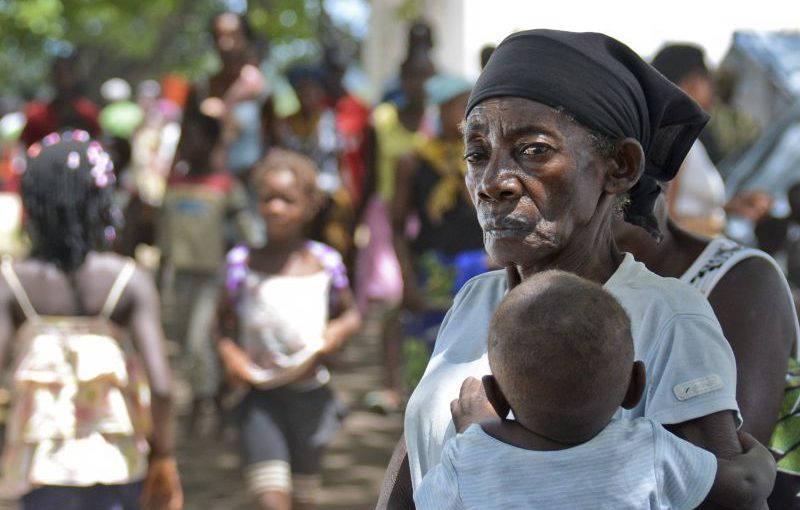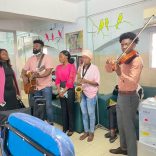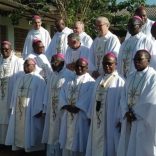Mozambican students head to the UK for Chevening scholarships
People displaced by attacks in northern Mozambique call for help

File photo: Lusa
Alima Mussá fled on foot, with seven children, from the village of Monjane located deep in the bush in Cabo Degado, northern Mozambique, in order to escape the armed attacks that have been plaguing the region for eight months now.
One of the groups responsible staged one of the bloodiest raids ever a week ago, when 10 people were beheaded in the villages of 25 de Junho and Monjane, remote settlements of mud brick houses without electricity or other infrastructure.
The murders gave rise to a new wave of refugees, fleeing to the district headquarters town of Palma about 45 kilometres away.
Alima Mussá and other residents made the trek with their children, some of them babies, carried by adults and older siblings, and now depend on food and shelter provided by relatives and acquaintances.
“I’m fleeing from the war – the ‘al-shabaab’ are there,” Mussá told Lusa, using the Arabic word for ‘youth’ without necessarily implying any connection with the Somali terrorist group of the same name.
“We fled with the children and a little food, so we arrived here hungry,” she said in one of the languages spoken in the province of Cabo Delgado.
Four of Alima’s children now have no school, she complains through the crying of another, cradled in her lap.
Now, when night falls, “no one gets any sleep”, Maria Mali, another displaced woman says. Like Alima, she hesitates when asked her age, unable to give a precise answer.
“We saw the attackers up close. When they get a woman, it’s to be married, when they get a man, it’s to kill,” she says.
Speaking Macua, fear and poverty are the first words she uses to describe the group of about 40 people she is a part of. “We call on the government to help us, and not to abandon us,” she adds.
“We’ve travelled cross-country” to reach Palma, she says, abandoning their vegetable plots.
Suleimane Issa, 17, also uses the word ‘war’ to justify his escape from Olumbi to his uncle’s house in Palma after seeing a group of about 10 people armed with guns and machetes.
He abandoned his schooling and, like the other refugees, intends to wait for calm before returning to the village where he lived.
Saide Dade, 35, the uncle who welcomed him, also gives shelter to other relatives, though he has no means to feed them.
“I do not have a job. It’s difficult, but I have nowhere else to send” those who ask for help, he tells Lusa.
Omar Sufo, 62, a Muslim leader, also speaks of the “al-shabaab war” in Olumbi, from where he fled to find shelter in the house of a younger brother in Palma, a village that remains a safe haven, immune to armed groups.
Omar asks the government for food support for the two women and five children who accompanied him.
“Yes, we saw [the aggressors] and fled,” he says, relating how, once the villages are empty, they “plunder the goods of the community”, including any food left behind.
But Omar says a quite sophisticated food was found in a camp suspected to have belonged to one of the armed groups.
“They found squid,” he says, evidence that leads him to believe there is a broad network of support for armed groups that attack the rural interior of Cabo Delgado.
A 32-year-old teacher, speaking to Lusa on condition of anonymity, escaped from Olumbi and found shelter in Palma at the home of a colleague.
“I do not feel good. I’m not working. We’re waiting a while before going back, if conditions are right.” And that’s the big question.
Authorities said they have killed nine suspected attackers near Olumbi since Friday in joint operations with residents.
ALSO READ: Mozambique: Defence Forces kill eight suspected islamists in Cabo Delgado – AIM report
The village of Mocímboa da Praia and rural villages in the province of Cabo Delgado in northern Mozambique have been targeted by armed groups since October 2017, causing an undetermined number of deaths and the displacement of local residents.
Ten people were beheaded on Sunday after being seized in two remote villages with no electricity or infrastructure.
A study released last week in Maputo points to the existence of illegal trade networks in the region and the movement of radical Islamist groups from countries north as among the roots of the violence.
A number of investments centring on the exploitation both offshore and onshore of natural gas over the next five to six years are under way in the province, involving some of the world’s largest oil companies.













Leave a Reply
Be the First to Comment!
You must be logged in to post a comment.
You must be logged in to post a comment.